Soldier arrested for alleged Iran spying, Israel says
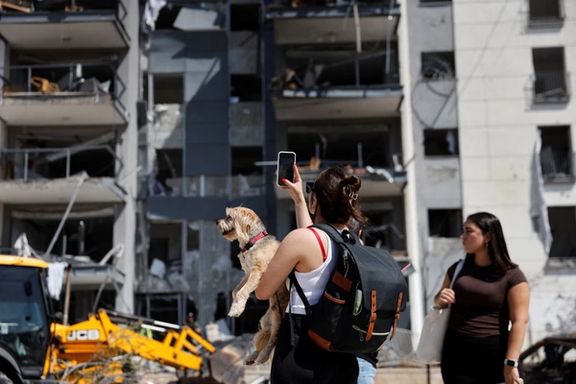
Israel's police announced on Thursday it had arrested an Israeli soldier they say was in contact with Iranian operatives and took money in exchange for information.

Israel's police announced on Thursday it had arrested an Israeli soldier they say was in contact with Iranian operatives and took money in exchange for information.
“The investigation's findings revealed that the soldier knowingly maintained contact with Iranian elements and, in this context, carried out tasks for them, including transferring a video of interceptions and photographs of missile impacts and strikes in Israel," the police said in a statement.
"It should be noted that the information did not come to him by virtue of his military role,” it added.
The arrest comes on the back of a new ad campaign by the Israeli government warning citizens against spying for Iran.
Israeli authorities say they have uncovered more than 25 cases of Iranian recruitment over the past year, with more than 35 people indicted on serious security charges.
“The campaign carries significant national importance, especially in the aftermath of (the war with Iran), after which Iranian efforts to recruit operatives and execute missions inside Israel are expected to intensify,” said Israel's National Public Diplomacy Directorate, which along with domestic security service the Shin Bet, is behind the campaign.
“For 5,000 shekels, is it worth ruining your life or family?” reads one of the campaign's video adverts, referencing the reported amounts some individuals have received for passing information to Tehran.
Since the Gaza war, there has been a 400% surge in arrests related to alleged Iran-backed spy plots, according to the Israeli security services.
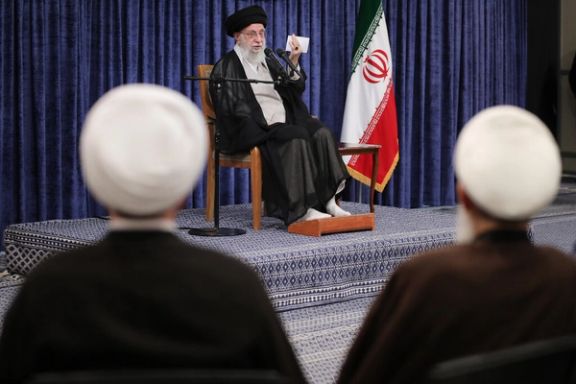
The official website of Iranian Supreme Leader Ali Khamenei on Thursday published an AI-generated cartoon appearing to depict Jews and Israeli soldiers as frightened rats fleeing Iranian missiles on an American flag-draped vessel at sea.
The caption to the cartoon cites part of a speech Khamenei made the previous day in which he said Iranian attacks forced Israel to seek US intervention.
"If (Israel) hadn’t bowed down, if it hadn’t collapsed to the ground, if it didn’t need help, if it were capable of defending itself, it wouldn’t have resorted to the United States like that. Turning to the United States means it realized it could not handle the Islamic Republic."
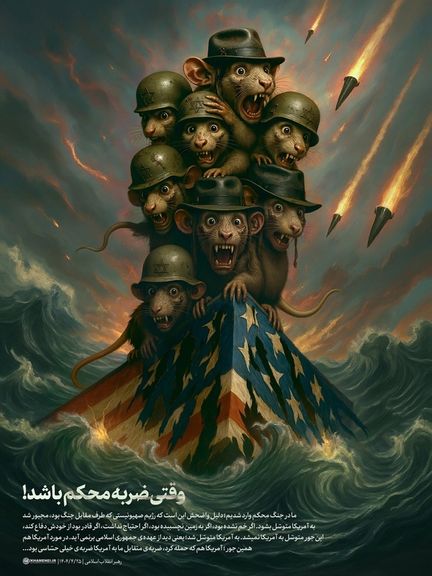
In the speech, Khamenei added, "we deem the Zionist regime a cancer," and called Israel America's "rabid dog".
Iranian officialdom has repeatedly declared victory following a 12-day war with Israel last month in which its Mideast nemesis pounded military bases and nuclear sites and killed hundreds of personnel, nuclear scientists and civilians.
Retaliatory Iranian missile salvos killed 27 Israeli civilians. The conflict was capped by US attacks on three Iranian nuclear sites which President Donald Trump said "obliterated" Tehran's disputed program.
Following the conflict, Iranian state TV aired a song calling for “uprooting the Jews” which aired July 2.
“Behind Ali, obedient to the Leader’s command, we are all proud soldiers; we will uproot the Jews with power,” the song said.
Iran’s state media has repeatedly promoted antisemitic themes across films, festivals, and official speeches.
In 2001, the government aired a mini-series titled Saint Mary that depicted Jewish communities at the time of Jesus’s birth as “lacking compassion and rationality.” The Jewish Association of Tehran criticized the series for reinforcing harmful stereotypes.
In 2005, then-President Mahmoud Ahmadinejad hosted an international Holocaust cartoon competition. Ahmadinejad, who publicly denied the Holocaust, once said Israel should be “wiped off the map.” The contest continues today with backing from official cultural institutions.
Despite the official hostility, Iran maintains a Jewish population estimated between 8,000 and 10,000. The World Jewish Congress notes the community’s historical presence in Iran since 586 BCE, with roughly 100 synagogues still in operation.
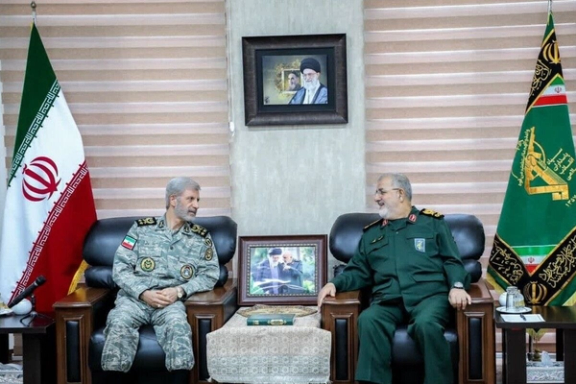
Iran’s top military commanders warned on Thursday that the armed forces are ready to resume fighting in the wake of the 12-day war with Israel amid a ceasefire brokered by the US.
“Our forces are fully prepared to resume combat from exactly where it stopped,” said Major General Mohammad Pakpour, commander-in-chief of the Islamic Revolutionary Guards Corps (IRGC), during a meeting in Tehran with Major General Amir Hatami, commander-in-chief of Iran’s army.
“The aggressors will not be spared,” he added. “The will and resolve of the Iranian people and our armed forces have triumphed. We stand together.”
Earlier in the day, a senior Iranian lawmaker also warned that Iran would respond to any future Israeli attack with a blow more severe than last month’s conflict.
“If the Zionist regime again makes the mistake of acting against the Islamic Republic, it will be hit even harder than it was in Operation True Promise 3,” Esmail Kowsari, a member of parliament’s national security and foreign policy committee, told reporters i Tehran.
Hatami said Iran would not wait for external threats to materialize. Last week, Israel's Prime Minister Benjamin Netanyahu warned that the war with Iran "is not over".
“The Zionist regime is a danger to regional and global peace,” Hatami said. “If given the opportunity, it would strike others in the region. We will not allow it.”
The commanders’ statements came amid Israel’s airstrikes on Damascus. Israel wants a demilitarised buffer zone in southern Syria.
US President Donald Trump expects Iran to return to nuclear negotiations, saying that diplomacy is in Tehran's best interest, according to the State Department Spokeswoman Tammy Bruce.
“I know that he expects them to begin to negotiate because that's in their best interest,” Bruce said in an interview with Fox News. “He has believed and continues to believe that diplomacy will work here."
Trump has warned that if Iran's nuclear program continues to pose a threat, he would "absolutely" consider more strikes, "without a question".
Iran maintains its nuclear program is peaceful.
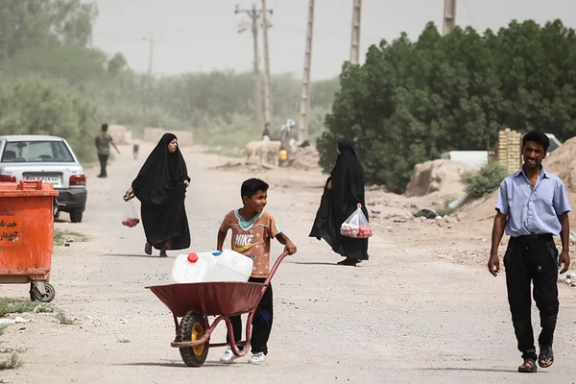
Three of Iran’s most resource-rich provinces, Khuzestan, Kerman and Hormozgan, recorded the highest levels of economic hardship in spring 2025, the news site Rokna reported Thursday, citing official statistics from the Iranian Statistics Center.
Khuzestan, home to much of Iran’s oil wealth, posted a misery index of 46.6, surpassing all other regions. The index combines unemployment and inflation to gauge pressure on livelihoods.
“While Khuzestan leans on oil, Kerman on copper and coal, and Hormozgan on its ports, the misery index in all three has reached unprecedented thresholds,” Rokna wrote.
The national index hit a 42.2 high in the same period, the report added.
The outlet warned that concurrent surges in joblessness and inflation were not only eroding consumer power, but “also endangering social and psychological stability.”
Rokna described Khuzestan’s situation as alarming. The province reported a 35.6% inflation rate and 11% unemployment in spring, despite commanding vast reserves of oil, gas, sugarcane, steel, surface water and port access.
“The water crisis and dust storms, widespread climate-driven migration, high unemployment among local populations, weak health and education infrastructure, and systemic corruption in resource allocation are among the main challenges facing Khuzestan,” the report said.
Since 2018, US sanctions have sharply curtailed Iran’s oil revenues and foreign trade, but recent developments—especially the coordinated US–Israel military strikes on nuclear sites and the threat of renewed UN snapback sanctions—have deepened the economic toll, paralyzing investor confidence and further isolating Iran from global markets.
Kerman, which ranked second with a misery index of 45.9, struggles with inflation in consumer goods, low wages in the mining sector, youth out-migration and limited rural access to credit, according to the report.
The province contains some of the country’s richest copper and mineral resources, as well as solar potential and arable land.
Hormozgan, in third place with a 45.8 index reading, continues to suffer despite its strategic coastal position in the Persian Gulf and role in maritime trade.
“Rising informal settlements, unregulated housing, inadequate education and high inflation” are key drivers of the hardship, Rokna wrote.
The publication cited official income data showing that disparities in Bandar Abbas, the provincial capital of Hormozgan, rank among the widest in Iran, particularly between the port’s core and surrounding settlements.
The economic struggles are also evident in the inadequate minimum wage for the current year, which is set at around 109 million rials (over $125). This amount covers only one third of the estimated cost of living for a typical household, calculated recently at about $600 based on the official data.
The rising costs of essentials such as food, housing, healthcare, and education have made it increasingly difficult for workers to make ends meet.
“The misery index is not just a number; it reflects unbalanced policies, unrealistic planning, and a social rupture in some of the country’s most resource-rich provinces,” Rokna wrote. “When regions endowed with wealth rank highest in misery, it means the distribution of resources and welfare has failed.”
The outlet warned about the intensification of “social dissatisfaction, migration, and even regional instability” in the country, and called on Masoud Pezeshkian’s government to prioritize changing the provincial governors.
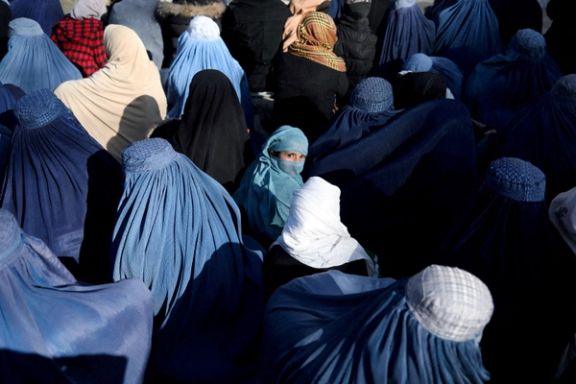
Iran’s escalating mass deportations of Afghan refugees are putting thousands of women and girls at serious risk of Taliban persecution, Amnesty International said Thursday, calling on Tehran to halt what it called flagrant violations of international law.
The human rights group condemned the forced return of more than one million Afghans from Iran so far in 2025, including unaccompanied children, dissidents, journalists, and human rights defenders—many of whom face serious threats under Taliban rule.
“All countries, including Iran, must recognize Afghan women and girls outside Afghanistan as prima facie refugees,” Amnesty said in a social media statement.
“Returning them to Afghanistan, where the Taliban are committing the crime against humanity of gender persecution, is a clear breach of the principle of non-refoulement," a concept which under international law prohibits returning anyone to a country where they would be at real risk of serious human rights violations.
The deportations have accelerated sharply in the aftermath of Iran’s 12-day conflict with Israel, with Iranian authorities citing national security concerns and alleged espionage ties to justify the crackdown.
According to the UN’s International Organization for Migration (IOM), more than 546,000 Afghans have been expelled from Iran since June 1.
Amnesty said Iranian authorities have uprooted men, women and children in home raids, street searches, and arbitrary detentions, often leaving them with nothing but the clothes they were wearing.
The deportation drive has intensified following a directive from Iran’s national police command stating that “all unauthorized foreigners must exit the country.” Brigadier General Ahmad-Ali Goudarzi, Iran’s border police chief, warned that any homes rented to Afghans would be seized.
On state television, Interior Minister Eskandar Momeni said some Afghan migrants had entered the country “with a specific intent to carry out sabotage operations” during the recent conflict with Israel.
Iranian media have aired forced confessions from individuals identified as Afghans allegedly involved in Mossad-linked operations. Rights groups say these accusations are unverified and often coercively extracted.
The UN and rights organizations have raised alarm over the humanitarian impact. UNICEF reports that over 5,000 unaccompanied minors are among those returned. The Red Cross has warned that as many as one million more Afghans could be expelled by year’s end.
In Herat and other Afghan cities now absorbing the influx, humanitarian organizations report a severe lack of food, shelter, and healthcare. Taliban officials themselves have described the situation as a looming crisis.
Anger over the expulsions has spilled over into Afghan social media, with users calling for a national boycott of Iranian goods.
Despite growing international concern, Iranian officials have stood by the crackdown, arguing that mass migration has overwhelmed the country’s infrastructure and that deportations are necessary to preserve national security and jobs.
Iran hosts millions of Afghan nationals, including an estimated 780,000 with official refugee status. But many more are undocumented workers who fled economic collapse or Taliban persecution after 2021.
Amnesty and other rights groups are urging Tehran to immediately end forced deportations and allow international agencies to monitor the process. “The world must not stay silent as Afghan women and girls are pushed back into repression and violence,” the organization said.
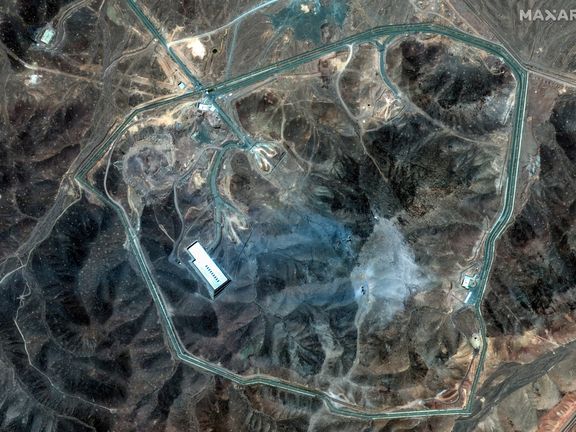
Just one of the three nuclear facilities struck by the US in Iran last month has been destroyed, according to a report by NBC News citing current and former US officials.
The latest assessment, which showed that Fordow was set back as long as two years, was briefed to US lawmakers, Defense Department officials and allied countries in recent days.
NBC also reported that an initial plan presented to US President Donald Trump involved three more sites, but the operation would have taken weeks, leading him to scale back the scope due to the risk of casualties on both sides and the fact that it was at odds with his foreign policy to extract the US from conflicts abroad.
“We were willing to go all the way in our options, but the president did not want to,” one of the sources with knowledge of the plan said.
The US strikes targeted three enrichment sites in Iran, Fordow, Natanz and Isfahan.
Trump was quick to call the strikes “a spectacular military success” and said, “Iran’s key enrichment facilities have been completely and totally obliterated."
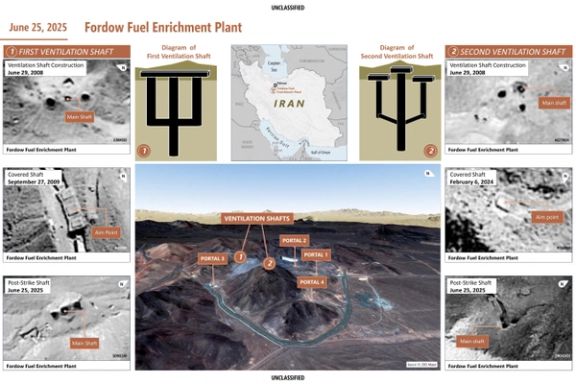
Israel has not ruled out further attacks on the two less damaged sites. Israeli Prime Minister Benjamin Netanyahu told Fox News last week that “it’s not over”.
Iran is the only non-nuclear weapon state enriching uranium to 60% U-235, a level that causes "serious concern," according to International Atomic Energy Agency (IAEA) Director General Rafael Mariano Grossi.
The IAEA has consistently maintained that there is no credible civilian use for uranium enriched to this level, which is a short technical step from weapons-grade 90% fissile material.
Iran has always said its nuclear program is purely for peaceful, civilian purposes.
Iranian Foreign Minister Abbas Araqchi said the strikes on the Fordow nuclear site caused severe damage.
A former top UN nuclear official told Eye for Iran podcast that a nuclear Iran is still possible despite US and Israeli strikes on key nuclear sites as the whereabouts of Tehran's near-weapons grade uranium remains unknown.
Around 400 kilograms—more than 900 pounds—of uranium enriched to 60% purity is unaccounted for and now with the International Atomic Energy Agency (IAEA) barred from the country, it is unsure if the location can ever be known.
Former Deputy Director General of the IAEA, Olli Heinonen, warned: “One should not relax because this material as such is enough for 10 nuclear weapons if it is enriched further to 90%. So in a big picture, yes, Mr Trump was correct, but it should have had this caveat that it's not yet over.”